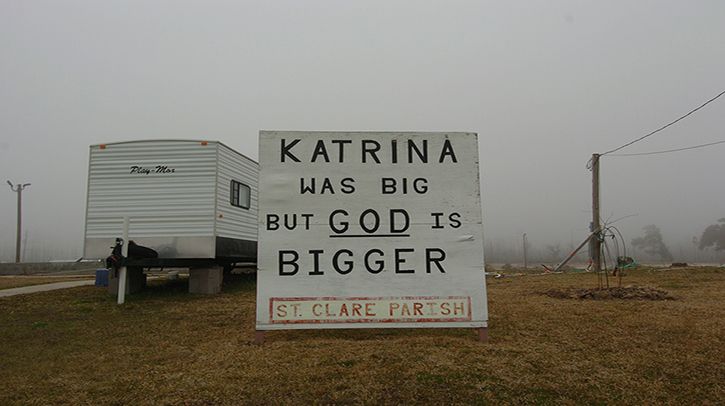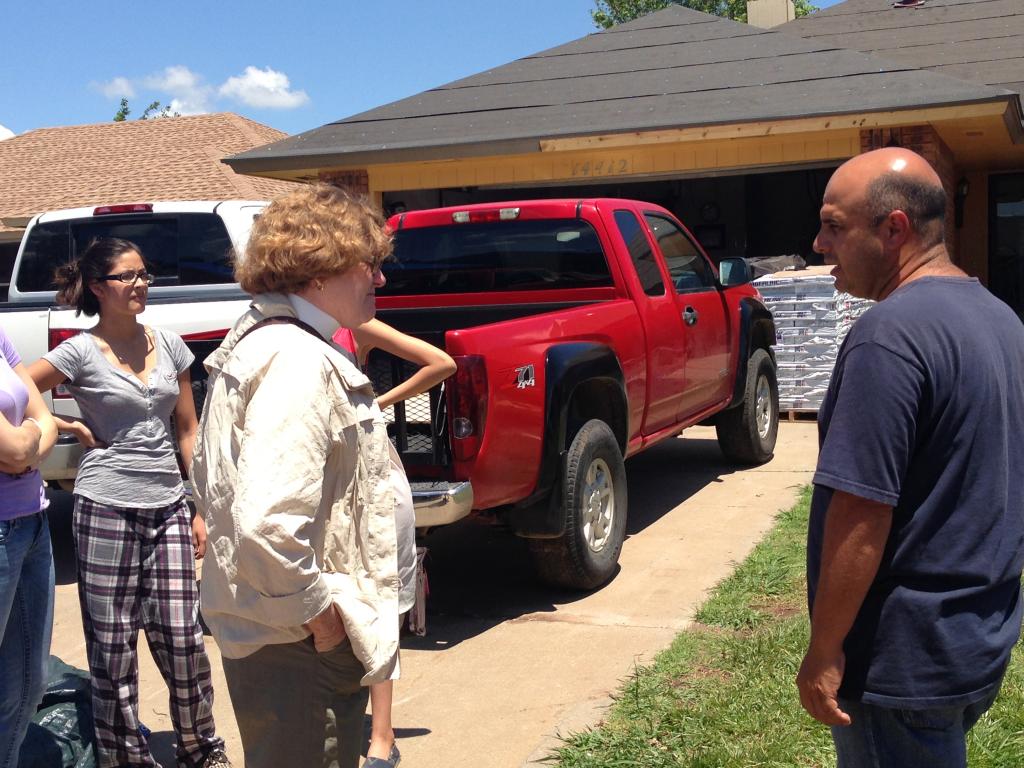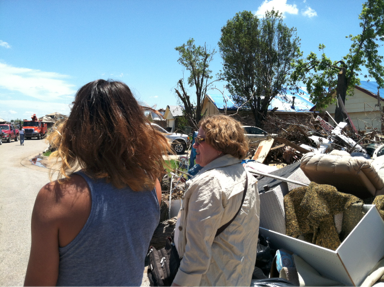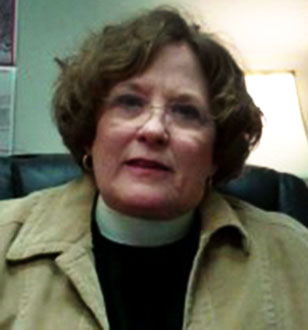#KATRINA10 – ‘Hi, I’m from New Orleans’: Building Community After Katrina and Beyond

#KATRINA10 BLOG SERIES ___________________________________________________________
It has been nearly a decade since Hurricane Katrina devastated many states along the gulf coast, leaving over 1,800 dead and tens of thousands displaced. Through the #KATRINA10 Blog Series we will be sharing stories over the next few weeks to commemorate the anniversary of the event and celebrate the progress made to rebuild communities.
We kick-off the series with a story from Elaine Clements who is the Diocesan Disaster Coordinator for the Episcopal Diocese of Louisiana and a member of Episcopal Relief & Development’s Partners in Response team.
___________________________________________________________________________________
“I was good at Katrina. I liked that!” Those were the words spoken to me just last week, the words of a good friend of mine, a Rector of a church in New Orleans during Katrina. “Yes. I get that. I liked it. I was good at Katrina, too!” was my astonished reply. Neither of us meant, of course, that Katrina was anything other than devastating, to a city and to each individual in it. Neither of us meant, of course, that there was not absolute tragedy in the loss of homes and lives that occurred. It was devastating. In some ways, it devastated a nation for a time, as people’s eyes were opened too much in our country that was not as we would have it be. Poverty was revealed to us, right at our doorstep. Environmental degradation and abuse was exposed. Mismanagement at every level was apparent. Lives in the thousands and homes in the hundreds of thousands were lost; many lives were forever and irrevocably changed. Personally I went months feeling as if I might never smile again. In the wake of Katrina, I sometimes felt all I did was say “goodbye”—almost our entire circle of friends lost their homes or their jobs or both; most moved away–forever. Both of my children left for economic opportunities where an economy still existed; they were leaving a city of no hope. They remain thousands of miles from me, even now.

It’s impossible to talk about the growth of ten years in just a few hundred words so I’ll fast forward to talk about this moment. In this moment, we are okay and in some ways enriched because of the experience of Katrina. For me it has meant finding the most meaningful work of my life, sharing my knowledge of disasters and long-term recovery in my work with Episcopal Relief & Development’s US Disaster Program. I am privileged to reach out to others, as one of a team in Episcopal Relief & Development’s Partners in Response, reaching out all across the country to those experiencing disasters in their own communities. As soon as I stick out my hand and say, “Hi. I’m from New Orleans,” they know that I have walked this path. When I smile, they know that life can be good again. When I say, “Things can get better,” they know that I know. Many of the folks I’ve met on these trips came to New Orleans to volunteer after Katrina, never dreaming that their own community might one day also suffer. For many of them that experience was the first of many experiences of volunteering. That work called them into the world in a new way, too. This work has been a blessed way to “pay” folks back for how good they were to us in those dark days.

So I could say that Katrina was transformative in my life. It transformed the Church in many ways too. We became more intentional about outreach, more focused in our love for one another and more committed to the work of rebuilding The Beloved Community. New Orleans, too, was transformed, of course, not only geographically and demographically, but also in essential ways. It is the new New Orleans, still both romantic and tragic but with a new cloak of hope.
We have much to be thankful for in this city on this, the tenth anniversary. We have many people to thank. We have a new and deeper understanding of what it means to have a faith that empowers us to see hope in the worst, to find resurrection and redemption in the darkest of nights.
————————

Elaine Clements is the Diocesan Disaster Coordinator for the Episcopal Diocese of Louisiana and a member of Episcopal Relief & Development’s Partners in Response team.
Images: Top, Clements in Oklahoma after the 2013 tornadoes talking to a family that was affected by the storms. Center, Clements with the aftermath of the storms. Bottom, Clements working at a community dinner in Chauvin, Louisiana after the BP oil spill.
Healing the world starts with your story!
During the 75th Anniversary Celebration, we are sharing 75 stories over 75 weeks – illustrating how lives are transformed through the shared abundance of our partners and friends like you! We invite you to join us in inspiring our vibrant community by sharing your own story!



